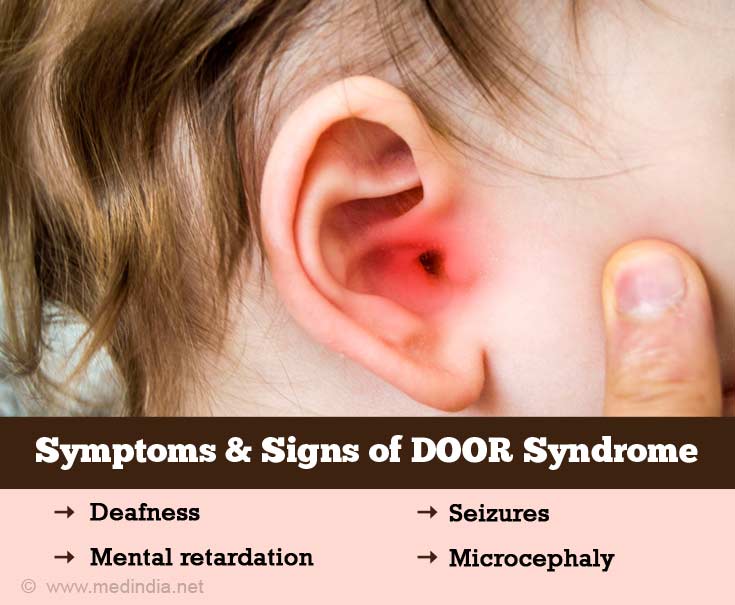What are the Symptoms and Signs of DOOR Syndrome?
The major symptoms or characteristics of DOOR syndrome are:- Deafness – Hearing loss that is present when the baby is born.
- Mental retardation or intellectual impairment – Severe changes to intellectual abilities in children e.g. Autism
- Osteodystrophy - Underdeveloped, misshapen or incompletely developed digits (e.g. toes and fingers)
- Seizures - Varied degrees in severity of seizures are observed in the initial year of the baby’s life. When the degree of severity is high and the seizures cannot be treated with antiepileptic medications, infant mortality is observed.
- Onychodystrophy - Developmental abnormalities or complete absence of toenails and fingernails
- Unique ridge patterns on the skin of fingers
- Hypothyroidism
- Microcephaly - Presence of a small brain
- Abnormal development of teeth
- Skeletal deformities
- Urinary tract and renal disorders
- Heart abnormality at birth
- Vision impairment
- Brain anomalies
- Increased levels of 2-oxoglutaric acid
- Facial anomalies – Bulbous nose, narrow forehead, wide base of the nose, narrow or high arched palate, narrow forehead, low-set ears
- Third bone in the thumb (triphalangy)

Nearly 25% of DOOR syndrome patients have long thumbs (the size of the other fingers) while 50% of the patients display a broad nose bridge.
What are the Consequences of DOOR Syndrome?
- The quality of life of infants with DOOR syndrome is affected due to severe hearing loss and impaired intellectual ability.
- Children suffer from hearing loss at birth, show developmental delays, facial abnormalities, vision impairment, weak muscle tone, and experience seizures.






